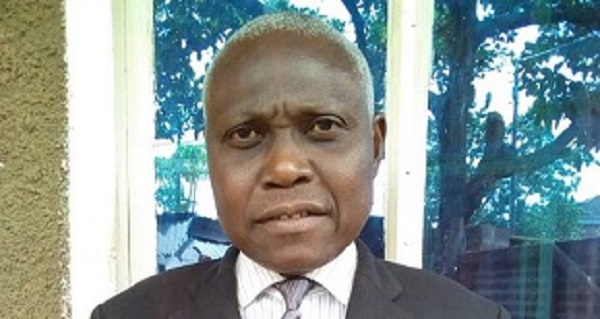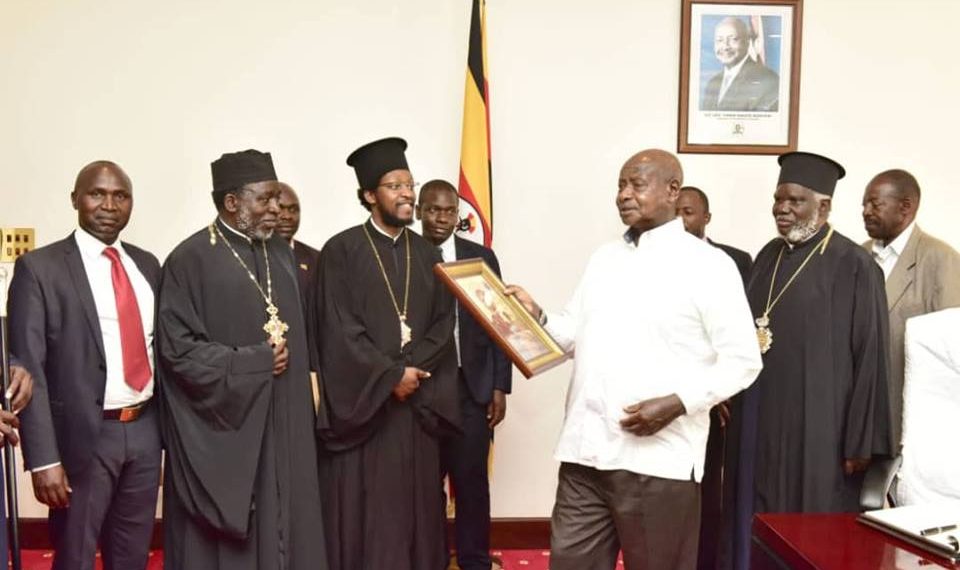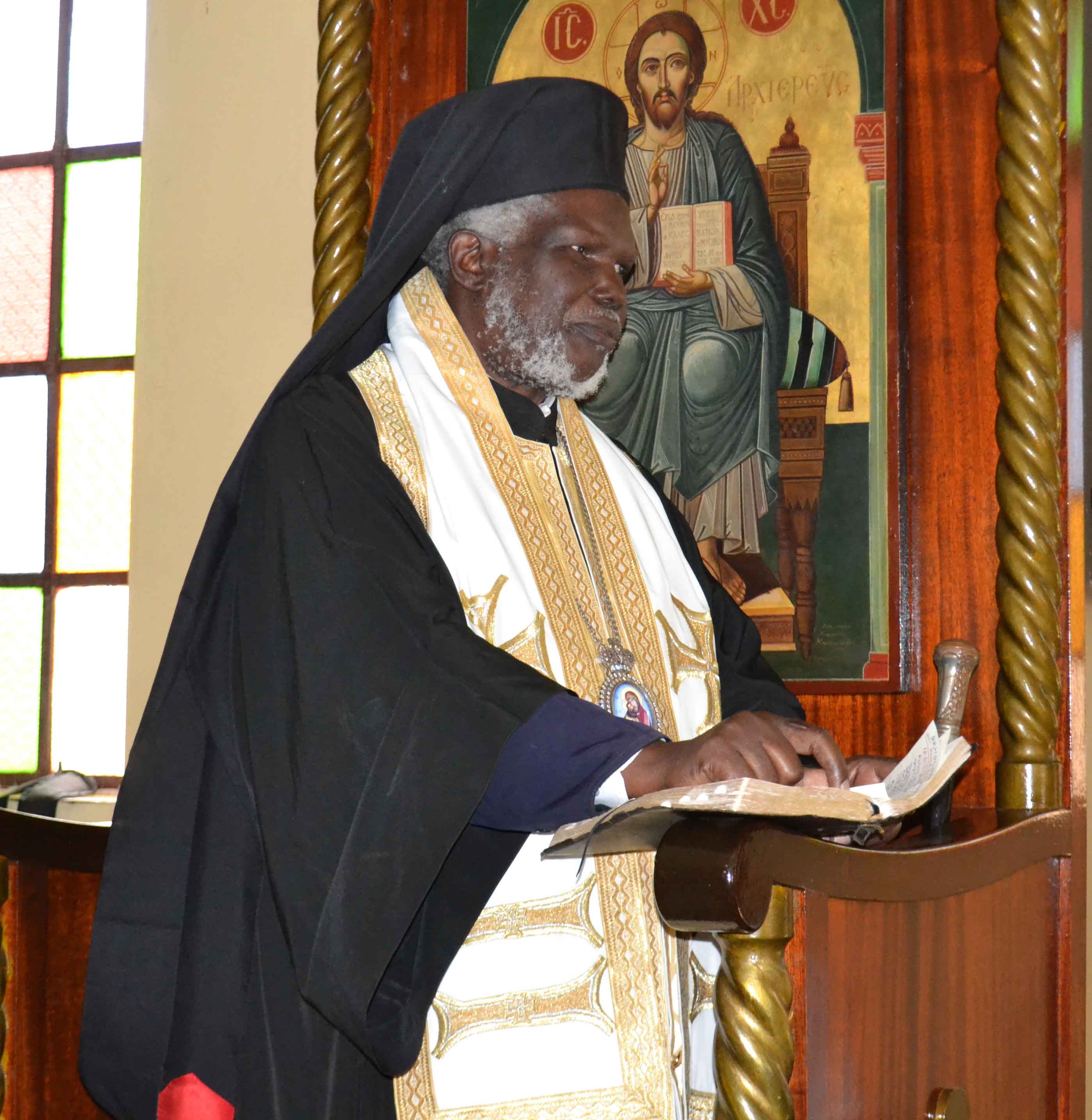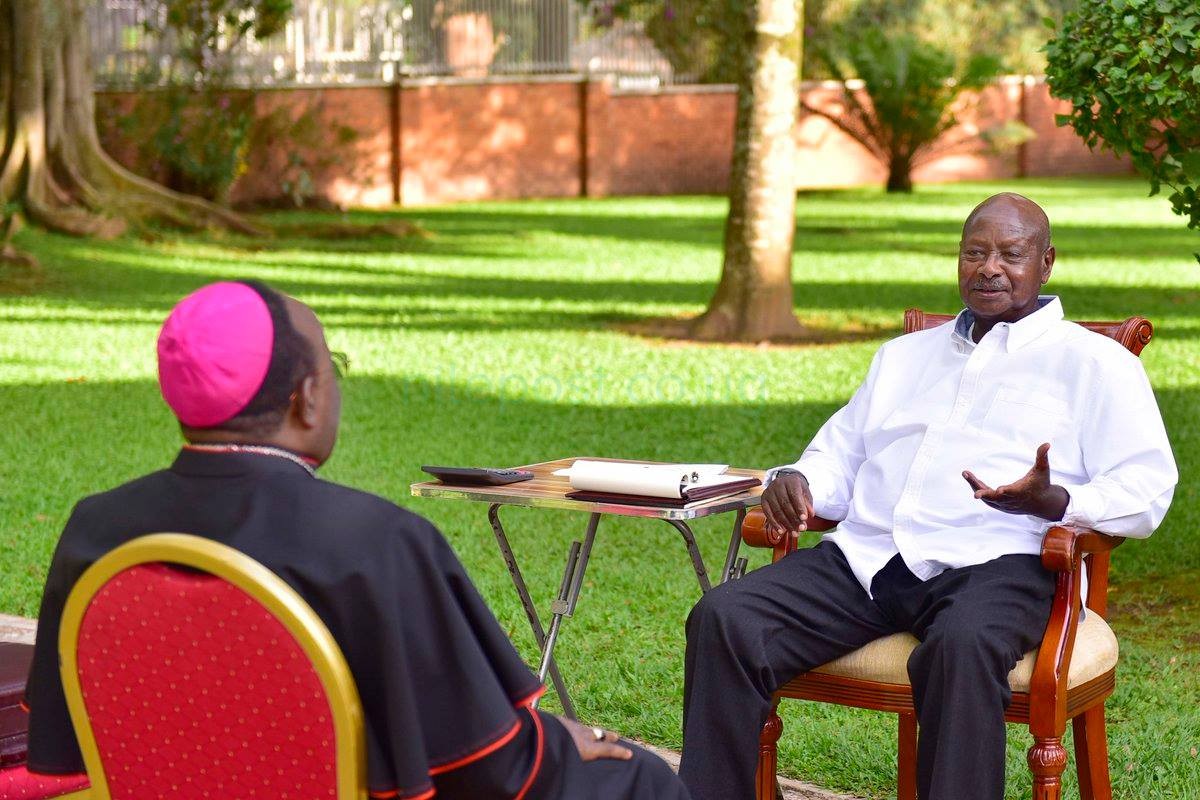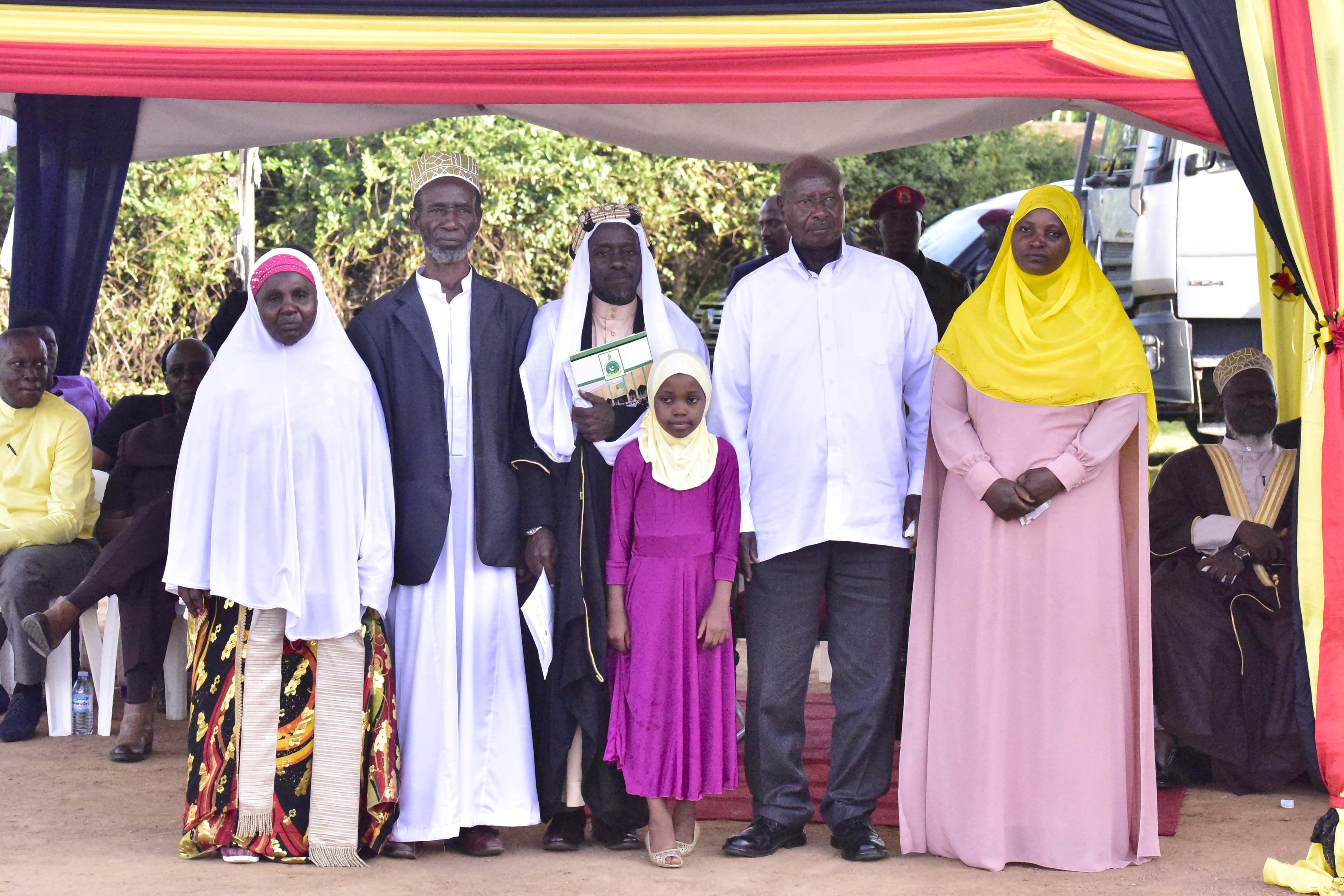Pastor Solomon Male; torching the rot in churches
September 4, 2018
Kampala, Uganda | AGNES E NANTABA | Pastor Moses
Solomon Male is an outspoken critic of corruption in churches;
especially by pastors and clerics who promote the gospel of manipulation
and mind control. He also cares for victims of paedophilia and
homosexual abuse.
Male also campaigns for greater financial accountability in churches.
He says that the practice of giving land, cars or household goods to
pastors in exchange for blessings, known as ‘sowing seeds of faith’,
which is widespread in Uganda is not included in the churches’ accounts.
“Those are treated as personal income of the pastors,” he says.
He started on the journey close to 20 years ago in 1999, upon
starting Arising for Christ (ARCH) to address the rot of religious
cults, homosexuality, and sexual abuses.
Male had just converted to Christianity three years earlier and had
served with several pastors in the country. He recalls surrendering his
life to Christ at a time when there were factions of Pentecostal
churches and pastors tracing their roots to Ghanaian Ghanaian-born
former Catholic priest and self-proclaimed prophet John Obiri Yeboah.
Two weeks into the salvation journey, Male was appointed a secretary to
one faction led by Bishop Makumbi which to him proved to be a revelation
opportunity of the dirty games of pastors.
Months later, Male joined self-proclaimed prophet Samuel Kakande and
his wife Lois of Holy Church of Christ, “New Chapter” renamed The
Synagogue Church of All Nations.
“They were prophets who had just returned from Europe,” said Kakande.
He would serve at the church as second in command for the next four
years which according to him proved the existence of fraud in church.
Male says, “I saw people robbed of their property, healthy people
manipulated into relationships with HIV positive people after falsifying
tests”.
Male left that church in 1992, denouncing it as a cult.
The following year, he was arrested as a result of his accusations
against the church, but was later released and the case withdrawn.
Once invited to Makerere University’s famous prime time fellowship
led by Pastor Martin Sempa, Male had the opportunity of sharing his
lifetime experience of serving the Lord with the congregation. And at
the end of the service, two young men approached him seeking his help.
“They revealed to me that they are victims of sodomy by some pastors,” said Male.
This would later mark the beginning of several other revelations from
young people about being victims of homosexuality and cult by some
church pastors, fellow young people and priests.
He says Arising for Christ (ARCH) aims to restore the sanctity of
Christ and to rid the church of fake and selfish people who carry
themselves as pastors to con the desperate and unsuspecting public.
Under the organisation, Male says he has compiled a list of 300
believers who accuse born-again pastors of extortion, fraud, sex slavery
and other crimes. He says he has failed to get allies in the fight.
He also started the cult awareness programme countrywide focusing on schools.
“Some pastors wanted to silence me but I vowed never to stop until
the vice is stopped,” says Male, “They had no moral authority to silence
me”.
In 2012, Male and five others were fined Shs1 million each and
ordered to do 100 hours of community service after being convicted of
conspiring to destroy Pastor Robert Kayanja’s name and profession.
But even with all the trials in the struggle, Male is not about to
resign. He continuously advocates for an end to religious cults and
homosexuality; especially in churches.
“Over the years I have realized so many misconceptions and
mis-teachings and unfortunately the church has done nothing to correct
them,” he says.
He says he is the defacto leader of the crusade against homosexuality and cults in Uganda.
“I am a pioneer in the fight against them,” he says, “I don’t think
that Uganda’s religious history can be complete without Male.
“I have been foremost in shaping Uganda’s spiritual and moral history and planes”.
Male, 56, was born just a few months before Uganda secured her
independence from Britain in 1962. He was raised by his mother in Ntinda
Kigoowa as his parents never married due to religious differences
between Muslims and Christians. He attended St Lugalama, Ntinda Primary
School, Kyambogo College School and Caltec academy Makerere where he
completed the advanced level of education. He is married to Justine
Nanziri Male and together they have three children.
Ugandan pastors’ love for America
https://archive.vn/20110716081120/http://www.sundayvision.co.ug/detail.php
 |
|
Pastor Jackson Senyonga |
Following
Christian Life Church’s Pastor Jackson Senyonga’s arrest in the US,
Esther Namugoji probes Ugandan pastors’ deep attachment to America...
The recent arrest of Christian Life Church’s Pastor Jackson Senyonga
is no doubt a thorn in the flesh of the Pentecostal churches in Uganda,
which have been battling tantalising stories about wayward pastors.
Pastor Senyonga may well be innocent of the charges that he behaved
lasciviously with a minor while on a flight from Denver to Oakland in
the US. Senyonga has explained that he was only inching away from a
snoring man, which caused him to lean more toward the girl on the other
side. Ugandan pastors have expressed confidence in his moral character,
even those who have disagreed with him in the past over different
issues. Senyonga is simply being maligned by the oversensitive American
culture where many men, even of the cloth, have been found guilty of
immoral acts.
But there is an element to this case that Pentecostal Christians
rarely get a chance to dissect. Among the Pentecostal pastors fraternity
there is a tendency to make America their frequent base, if not home.
For instance, it is amazing that Pastor Senyonga has been away
preaching since February and will only return in November, according to
his church aide. His wife Eva is also currently in the US. Senyonga’s
website lists a US ministry as one of his ministry activities, and he
“travels to nations and cities to address key churches and events to
stimulate spiritual transformation through prayer, personal
transformation and evangelism for church growth”.
Over the last 20 years, it has been a trend for Ugandan preachers to
cast their visions overseas, with the pressure to label their
ministries ‘international’ following almost every Pentecostal preacher. A
visit to ‘outside countries’ is the desired springboard for most
pastors. Many pastors spend more time at airports and in planes, and
have become pastors of the air, as one top Kampala pastor once quipped.
Some of the powerful churches in Kampala are actually run by
assistant pastors, as the heads are busy with ministry in America and
other countries. Congregations go for months on end without seeing the
man of God and only receiving greetings from their pastor through phone
calls relayed by the associate pastor. There are many doors that are
opened with a visit to the US. Education opportunities, financial
partners and opportunities to widen the preaching circuit abound.
Pastor Simeon Kayiwa has been moonlighting as a professor at the
Latin University in California and is to start a university here.
Pastors can build networks with willing donors and other pastors, which
benefit the orphans and the poor. Others, including Senyonga, have
invited volunteer teams on medical missions or to help build schools.
There is also a movement that sees Uganda as a missionary base and the
fact that there are American congregations eager to listen to them is a
positive sign.
All this would be well, if there were not a number of issues arising out of this trend.
Behind the drive to flock America is the lure of the
image-is-everything prosperity kind of gospel. There is competition to
have the most beautiful church structure, the best dressed choir, a
televised programme, website, the most modern musical and public address
equipment, sometimes a media house and other expansions. On a personal
level, pastors must have a modern car, suits, a mansion and a contingent
of bodyguards. All these things cost a lot of money and there are only
so many ways a pastor can get money out of an average congregation.
Many pastors have to become resourceful in attracting donors to
sponsor their plans. Usually, it starts with a visit to the United
States of America, where many rich people are touched by the stories of
AIDS orphans and poverty. Unfortunately, some pastors take advantage of
this situation to hoard a lot of money, only a fraction of which ends up
in a hastily set up orphanage. Sometimes, the physical structures are
put up after news that the donors will be visiting to tour the projects.
Almost every church has an orphanage or school attached to it. Although
many of them are genuinely meeting the needs of the community, some are
mere conduits for collecting money. A number of pastors have got into
scraps with the Police and parents over orphanages or study-for-free
schools that are run on crooked principles.
Many American Christians have been led to believe that President
Yoweri Museveni is a born-again convert, when the President himself has
said he long abandoned the faith.
A Kampala lawyer told this reporter of a ‘pastor’ who ingratiated
himself with an American couple and told them of an orphan he had
reportedly rescued from Rwanda during the genocide. The couple used to
send money, clothes and other types of assistance to ensure that the
child was well taken care of. He also convinced them to donate money to a
church over a number of years. When they decided to adopt the child the
pastor went into some dubious methods to try and smuggle the child out
of the country, but those attempts failed. 10 years later, the couple
came to Uganda and was so heartbroken to discover that the ‘pastor’ had
been feeding them on a pack of lies. The girl’s mother was not dead,
although she was mentally unstable and had abandoned the child. The
child’s grandmother laughed at the fantastic Rwanda genocide story and
the church they had been sending money to was non-existent.
It turns out that the man used to be a preacher, but had become a
businessman in Kampala and America, and as time proved, a terrible liar
and extortionist.
There are pressures in the US that many Ugandan pastors are not able
to resist. Many try to imitate the swashbuckling lifestyle lived by
American preachers and transport it to their home churches. Those who
travel without their wives have been lured into intimate relationships
with women who don’t mind the fact that the pastor is already married.
Some preachers leave the country on a ministry mission only to get
married to American citizens in order to become official residents.
According to Pastor Solomon Male of Arising for Christ, there are
many such pastors who leave the country purportedly to preach, only to
end up on kyeyo, doing odd jobs to make money.
“The church is just a business venture for some of them. They go and
deceive that they have orphans and poor people they are looking after,
then they come back and live lavish lives. They don’t implement what
they solicited the money for.”
Male says a pastor like Stephen Ssozi was really running the church
as a personal business and that is why he sold it to Pastor Frank
Lutaaya. However, the bulk of the congregation moved out and placed
themselves under the care of a more trusted pastor.
Sometimes, money is raised from different churches in multiple
fundraising drives for equipment or buildings when only one project is
being undertaken. Still, church members will be made to contribute
towards the same when they arrive in Uganda or at least be asked to pay
for equipment to be cleared at the airport.
There are pastors who double as importers, mixing donated items with
their business stock and making quite a handsome profit, both from the
donated stuff and from not being taxed.
When Sunday Vision spoke to Pastor Male, he reeled off a number of
bizarre cases, some believable and some extreme. He is confident about
his sources of information and says he has followed up some cases and
found them to be true.
Male also alleges that some have ended up being trapped in
homosexual tendencies after getting funds from gay donors
indiscriminately. Many so-called pastors have sold their souls to a
number of dubious causes, all in an attempt to raise money.
The principal of Kampala Evangelical School of Theology, Rev. Dr.
Solomon Nkesiga, says there is nothing wrong with pastors spending a
long time outside the country if they have congregations there.
“When you have a good administration at home then you are able to be away to attend to the other congregation,” says Nkesiga.
He, however, thinks it strange for someone to be away for months
rotating on speaking engagements if they don’t have a congregation they
are leading in a different country.
In his assessment, many pastors have attracted a lot of money around
them and, therefore, can afford to spend many months overseas.
“It is not that pastors like to go to America. They are invited to
preach or to study. I don’t see any problem, especially if he is doing
God’s work,” says Pastor Godfrey Kamese of Praise Christian Centre. He
points out that a church must have the quality of continuity even in the
pastor’s absence, after all, one day he will die and the church must go
on. Kamese says we must understand the genesis of the connection
between Pentecostals and America.
“After (the late president Idi) Amin fell, it was the Americans who
first came and preached here. The likes of T. L. Osborne and Oral
Roberts were responsible for training many pastors. America is to
Pentecostals like Rome is to Catholics, Mecca to Muslims or England to
Anglicans.”
Kamese dismissed as hearsay, allegations that some pastors do other things apart from preaching while in the US.
“I have never heard of any big name pastor doing kyeyo,” Kamese said while declining to comment on the issue.
A source who spoke to Sunday Vision on condition of anonymity
suggested that some pastors are involved in money laundering. The source
said pastors sometimes receive money from people who want to hide their
illicit proceeds and because they cannot bring it all into the country
at once, they spend it in America and Europe. Uganda’s anti-money
laundering system is weak, with the draft Anti-money Laundering Bill yet
to be debated in Parliament. But a Uganda Anti-Money Laundering
Committee would work with security, communication and banking
institutions to monitor the situation. Today, detection and prosecution
is hindered by confidentiality obligations and lack of proof. But banks
are obliged to report single deposits in excess of $100,000 (about
sh170m).
However, Solomon Male argues that if a church banked sh1b on an
account it can be easily explained away as coming from donations, or
offerings. He also says since there are no government audits and
churches are tax-exempt, dirty money is easy to cover up.
When the funds raised are diverted to finance pastors’ lavish lifestyles, then their motives are likely to be questioned.
“We have reduced God to America. Going to America is like going to
heaven. Our accents are Americanised, the lifestyle is Americanised.
This will ruin our pastors,” a young pastor laments.
But the cycle continues, with new generations of preachers seeing
the American dream as the only way to make it past the early struggling
years of a ministry. Some have fallen victim to Internet fraudsters who
scam them over visas or with invitations to ghost conferences.
There are many benefits to the church and the pastor, mostly in
terms of fame and finances. But sometimes there is a price to pay in
domestic affairs while the pastors are abroad. Many of the churches that
have fragmented acrimoniously have split due to the absence of the
senior pastor, while a junior pastor does all the work. On the head
pastor’s return, disagreements develop sometimes over loyalty and many
times over money issues. Sometimes the pastor comes back with a grand
plan or project that he expects to be adopted and implemented at short
notice, thus breeding bitterness in the now less powerful assistants.
This phenomenon has contributed to the building of a cult status
around some pastors. Because the pastor is a rare sight, when he returns
from a trip abroad, he is treated almost like a god. The dramatic
display of erstwhile pastor Patrick Muwanguzi’s ‘anointing’ when church
members fell at his feet at Entebbe Airport on his return from Israel,
was an exaggerated and perhaps stage-managed example.
When he is back, everyone wants to talk to the pastor personally.
Some pastors have built a kanyama squad to protect them from the
clamouring flock and many pastors have lost touch with the people they
lead. Sometimes, apart from the leaders, only the biggest tithe-givers
are in touch with the pastors.
Where other businesses are run beside the church, scandals are not
rare. For instance, Pastor Senyonga’s media enterprises have for long
been accused of defaulting on employees’ salaries. His defenders claim
this happens without the pastor’s knowledge, but others say his absence
definitely contributes to the problem.
“The American dream has wrecked many pastors. They become religious
merchants with no concern for the flock, but only interested in money
and prosperity for their own lives.
“It has ignited cut-throat competition among them and those who have
not yet got access to America become ravaging wolves on the local flock
that they rip off ruthlessly,” Male asserts.
But personal repercussions also abound. The recurrent absence of a
parent often bears negative fruit and some pastors’ homes have suffered
as a result, with rebellious children or depressed wives.
One pastor’s wife called it quits after discovering that the man of
God had a parallel family in America. There are some known sad cases of
family disintegration directly related to the frequent and prolonged
overseas trips.
A church congregation in Entebbe has been in denial for some years
about what transpired between the pastor and his wife while in the US
that he returned alone from one of the trips. Full of love for the once
powerful servant of God, they seldom discuss suspicions that the pastor
has inappropriate relations with other women.
“We need to clean up the rot in the body of Christ so as to restore the confidence of the masses in Christianity,” says Male.
Because most pastors are accountable only to themselves, nobody ever
knows what they are doing in America apart from what they have been
told. Plus, many pastors cover for each other for the good of the
fellowship as they counsel or negotiate with their fallen colleagues.
On this side of the Atlantic, the assumption is that the pastors are
very busy with a full preaching schedule, even when some are working
hard as drivers, store clerks or musicians.
Published on: Saturday, 30th August, 2008
